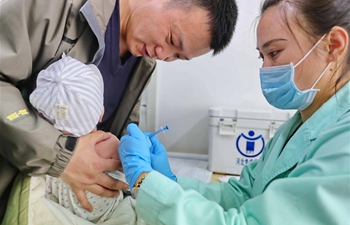VIENNA, April 25 (Xinhua) -- Breast cancer passed down in families may be preventable by the medication Denosumab, which is undergoing a five-year study in Austria.
The Austrian Breast and Colorectal Cancer Study Group is leading the work as it examines the drug's effectiveness on 2,950 patients with a hereditary disposition to this particular form of cancer, according to an Austria Press Agency report.
Speaking at a press conference on Thursday, Professor Christian Singer from the Vienna General Hospital said the study will also examine the effects of Denosumab on healthy women who have a mutation in the BRCA1 gene.
These women have a 1.8 percent chance of developing breast cancer each year, or about an 80 percent chance during their lifetime. In addition, they have a 50 percent chance of developing ovarian cancer.
Up to now the only preventative measure against both cancers has been surgical removal of the affected breast tissue or the ovaries.
The participants in the drug trial will receive either a Denosumab injection or a placebo every six months, Singer said.
Denosumab is known as a monoclonal antibody and has been used in particular to treat osteoporosis, due to its capacity to prevent the development of cells that break down bone.
Earlier Austrian studies have given strong indications that Denosumab may be effective against breast cancer, experts said.












